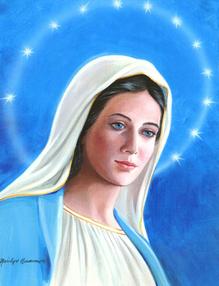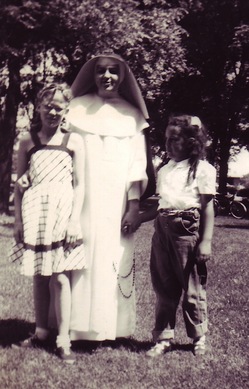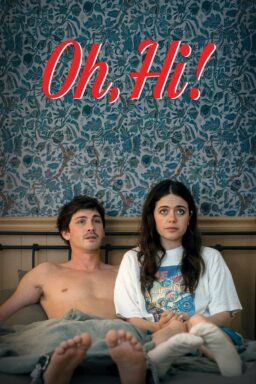
My grade school couldn’t get state approval today. The teachers were unpaid and lived communally. Two grades were taught in one classroom. There were no resources for science, music, physical education, or foreign languages except the Latin of the Mass and hymns. No playground facilities. The younger students were picked up by the single school bus; as soon as we were old enough, we rode our bikes to school, even in winter.
A typical meal in the lunchroom might consist of a peanut butter and jelly sandwich on white bread, a dish of corn, a dish of fruit cocktail, and a carton of milk. On Fridays we had fish sticks or macaroni and cheese. On bad days we got chipped beef on toast, and that’s how I discovered that word. If you had a penny, you might buy a jawbreaker afterward.
I received a first-rate education. At St. Mary’s Grade School in Champaign, one block across Wright street from Urbana, were we taught by Dominican nuns who knew their subjects cold, gave us their full-time attention, were gifted teachers and commanded order and respect in the classroom. For eight years we were drilled on reading, writing, arithmetic, and religion. Periods were devoted to history, geography and science, taught from textbooks without visual aids or any other facilities. We learned how to write well, spell, and god knows we learned how to diagram a sentence. And we looped away at the Palmer Handwriting Method, neatly writing JMJ at the top of every page, for Jesus, Mary and Joseph, who would bless our lessons, but not always.
I can’t prove that a St. Mary’s graduate had a better education than a majority of today’s high school graduates, but that’s my impression. Some of the high school kids who write good comments on my blog say they’ve taken over their own education, at least in reading and writing. At some point they wanted to because their classes had become boring. I taught rhetoric in a Chicago city college for a year. The impression I got was that some students always could write, and some of the others would never be able to. For years during grade and high school I read secretly at my desk, while following the class elsewhere in my mind.

I attended St. Mary’s for an excellent reason: I would get into heaven. I liked my public school friends, but they were non-Catholics and couldn’t look forward to that. It was their misfortune they weren’t pagans; pagans at least could spent eternity in Limbo because they lacked the luck to learn about the Roman Catholic Church. Protestants and Jews had their chance and blew it. “Hindus” and “Muhammadans,” the titles under which I mentally filed all the peoples and religions of Asia, India, Arabia and the Holy Land, I suppose were given a pass as honorary pagans.
We put dimes into envelopes that were mailed by Sister to the Society of the Propagation of the Faith. We were each “sponsoring” a little African child, who would now be able to learn about the Church from missionaries and look forward to spending eternity gazing upon the face of God. The first hour of every day was devoted to the study of religion, which began with memorizing the Baltimore Catechism and in upper grades developed into fascinating discussions of theological loopholes. I asked in class one day if the little African children wouldn’t be better off without missionaries, because if they never learned about salvation through the Church, they wouldn’t run the risk of hell. Sister Rosanne looked at me sadly. “Those poor little children have just as much a right as you do to enjoy the love of God.”

This was, if you think about it, a liberal argument. We never discussed politics in class, but I came away with the firm impression that Franklin Roosevelt was our greatest President after Lincoln. In general the Dominicans applied Catholicism toward liberal ends, such as support for equal rights, freedom of speech, separation of church and state, and the rights of workingmen. We especially valued separation of church and state because it was all that protected us from a Protestant takeover. Abortion was off the table as a subject fit for the classroom. Birth control was also not discussed; it was assumed you saved yourself for marriage and then had as many little Catholics as the lord desired. Religion class did however cover such topics as tattoos (a sin against the body, which is the temple of the Holy Ghost) and naming pets after saints (a sacrilege; Rover was allowed but not Max). One day in eighth grade the boys and girls were separated and the assistant priest took us into the auditorium and warned us never to touch ourselves. He didn’t specify where we were not to touch.
The school building had a basement for Sister Ambrosetta’s first grade room, the cafeteria and the gymnasium. The gym was just slightly larger than a basketball court, and had two or three rows of seats across one of the short ends. Pads under the baskets protected us from crashing into the walls. Our coach was the tomboy Sister Marie Donald, who tucked up the hems of her habit and dribbled and shot better than any of us. She taught second and third grades on the second floor, and it was there we had what passed for school band practice. She passed around triangles, tambourines, ratcheted sticks, maracas and wooden blocks, and we formed a rhythm section to pound, scrape, ding and rattle along with music on 78 rpm records. Fifth and sixth grades were taught by Sister Nathan, a fresh-faced favorite who usually seemed amused by us. We took this as a sign of favor. During all eight years our musical education continued with the singing of hymns in English and Latin, patriotic songs, and what seemed like the entire Stephen Foster Songbook.

Sister Rosanne, an immensely kind woman, very smart about current events, taught seventh and eighth grades. Sister Nathan, a great favorite with the students, taught third and fourth, and then moved right along with us to fifth and sixth. I can’t account for second grade; in my memory, Sister Ambrosetta only taught first, but maybe we were all so young we seemed the same to one another. The school was supervised by Sister Gilberta. To be sent to the principal’s office was a special damnation. We feared her, because we feared the feeling of guilt. None of these nuns were “strict” in the sense usually meant. They simply assumed we would behaved, and for the most part we did. No sister ever laid a hand on any student as far as I know. Nor did they raise their voices. It was an orderly school. We regarded the nuns with a species of awe, because they were the brides of Christ and had the entire Roman, Catholic and Apostolic Church backing them up.
The school year mirrored the church year. We turned the pages on a big Advent Calendar, observed Saints Days, wore ashes on Ash Wednesday, announced what we were giving up for Lent. After a long winter, we held a May Day parade, the boys in ties, the girls in frocks. In eighth grade our Queen of the May was Jeanne Rasmussen. We marched in procession from the school to the statue of Mary next to the church, and placed little bouquets at her feet, singing:
Bring flowers of the rarest
bring blossoms the fairest,
from garden and woodland and hillside and dale;
our full hearts are swelling,
our glad voices telling
the praise of the loveliest flower of the vale!
O Mary we crown thee with blossoms today!
Queen of the Angels and Queen of the May.
For recess, we raced from the school to the playgrounds, which were two vacant lots ringed with shrubbery on either side of the Convent. The nun who was the cook and housekeeper kept an eye on us from her kitchen steps. There was no playground equipment, not even a swing or a slide. We brought our own gear. We played softball, dodgeball, football, marbles, jacks and mumbly-peg. There was a fallen tree trunk on which we played King of the Log, which involved two boys mounting the log and trying to push each other off. Girls fanatically jumped rope, which boys would not and as a result could not do, and were big into hopscotch.
I was not gifted at sports, but was sought after as an entertainer. I had the knack of reading a book and repeating its dramatic highlights, and I’d walk around the block regaling my followers with the career of Harry Houdini. I went though a particularly devout period after I took the Confirmation name of Blessed Dominic Savio, the saintly young pupil of St. John Bosco. I was allowed this choice by the special dispensation of Fr. McGinn of my own parish, because technically my choice should have been a saint. Dominic made sainthood a few years later, one of the youngest saints in church history. A large image of him can be seen on the wall of the grade school in Fellini’s “8 1/2.”

I was inflamed after reading a biography of Savio in which, as a lad in school, he attempted to teach his schoolmates the folly of violence as a means of ending disputes. Two of them had a grudge and announced they would settle it with a fight. Vainly did the Blessed Dominic attempt to talk them out of this. When they squared off, he removed a crucifix from his pocket and stepped between them, holding it aloft and telling them, “Throw the first stones at me.” Shamed, they lowered their heads, and he urged them to make a good Confession. This struck me as exemplary behavior, and I went to school with a small crucifix in my pocket and asked two of my friends, Dougie Pierre and Jimmy Sanders, to start a fight so I could step between them. They said they weren’t mad at each other. “Then start one anyway,” I pleaded, not quite capturing the spirit of Blessed Dominic’s message.
I was a case study. I threw myself into the school’s annual magazine subscription contest, sponsored by the Curtis Circulation Company. A portion of each subscription went to the school, and the best salesman won a trophy. I won two years in a row, flogging the Saturday Evening Post, Ladies’ Home Journal, Popular Mechanics and dozens of other titles (the nuns neatly crossed off Esquire on every form). A Curtis pitchman arrived to kick off the next year. “Everyone you know is a sales opportunity!” he lectured us in the auditorium. “Your parents, your neighbors, even people you meet! Don’t be shy! Sell those subscriptions!”

I raised my hand. “Sir,” I asked, “would you like to buy a subscription?” I expected laughter, applause and his congratulations. What I got was total silence and Sister Gilberta ordering me to meet with her in the hall to explain why I had embarrassed my whole school. Then followed conferences with my parents. I felt humiliated and outraged. I thought I’d been outrageously mistreated by people with no imagination or sympathy. I suppose in another sense I was being a little asshole. That pattern has persisted.
Something happened the summer after eighth grade that puts St. Mary’s in a new light. It was my last year at St. Joseph’s Camp for Boys, on Bankson Lake in Michigan. One of my buddies was Mole Hasek from Ohio. One day the guys were grabbing off his glasses, putting them on and staggering around: “I’m blind! I’m blind!” I took my turn and the entire world shifted into focus for the first time in my life. I didn’t ever want to take them off again. I wrote my parents: “I need glasses!”
The optometrist had me read the charts and slowly straightened up. “Had Roger ever wore glasses?” he asked my mother. “No. He hasn’t needed them.” The doctor said: “He’s probably always needed them. He’s extremely short-sighted.” He wrote me out a prescription. “Wasn’t he ever tested?” Testing me had never occurred to anyone. My parents and my Aunt Martha the nurse monitored my health, which was good; I was in the hospital only twice, to have my tonsils and appendix removed, and had monthly radiation treatments for ear infections. They were probably responsible for my salivary cancer. I’d never complained about eyesight, and no one noticed any problems. My father said: “Now we know why you always had your nose in a book.” I also knew why I was no good at sports: I couldn’t see well enough. I remember in seventh and eighth grades having a desk in the back row of the room. I must not have been able to read the blackboard very well–then, or ever before. How did I get through grade school? I have no idea. Maybe Blessed Dominic coached me.
The photos were taken at our class picnic in Hessel Park in the early 1950s. From top to bottom: me with John Rasmussen, Sister Mary Nathan with Sally Hopson and Lizzie Johnson, and Sister Marie Donald. What amazes me is how young our nuns were.
Get the <a href=”http://www.widgetbox.com/widget/rogerebertcom-movie-reviews”>rogerebert.com :: Movie reviews,</a> widget and many other <a href=”http://www.widgetbox.com/”>great free widgets</a> at <a href=”http://www.widgetbox.com”>Widgetbox</a>! Not seeing a widget? (<a href=”http://docs.widgetbox.com/using-widgets/installing-widgets/why-cant-i-see-my-widget/”>More info</a>)











